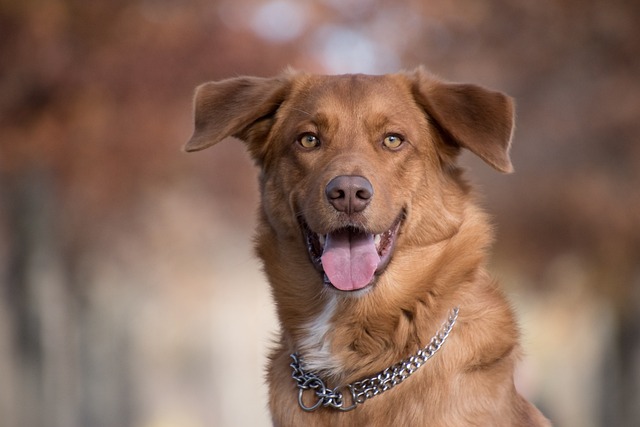
Precautions for raising a dog when the temperature suddenly drops
As the cold wind howls outside the window and the temperature plummets overnight, while you wrap yourself in a thick cotton coat,
A dog's cough always makes the owner's heart tighten, as if he is also worried. Coughing, this seemingly ordinary physiological reaction, hides many possibilities. In-depth exploration of what causes dogs to cough can not only help us better protect the health of our fur children, but also allow us to have more coping strategies when they are uncomfortable.
The dog's respiratory system is like a sophisticated castle, consisting of the nasal cavity, throat, trachea, bronchi and other parts. Once there is a problem in these parts, they may cause coughing. One of the most common causes is respiratory infection, which is just like a human cold. The invasion of pathogens such as viruses, bacteria, and mycoplasma will irritate the dog's respiratory mucosa and cause coughing. Viral infectious diseases such as canine distemper and kennel cough (infectious tracheobronchitis) are often accompanied by frequent and severe coughing, and may also be accompanied by symptoms such as fever, runny nose, and mental depression. When the owner finds that the dog not only coughs, but also becomes less playful and has a poor appetite, the inner worries will surge like a tide, and the owner is eager to find the cause of the disease and restore the dog's former vitality as soon as possible.
Bacterial infection should not be underestimated. For example, bacteria such as Streptococcus pneumoniae and Staphylococcus aureus will take advantage of the dog's reduced resistance and cause pneumonia, resulting in wet coughs in the dog, and sometimes rales can be heard in the lungs. Respiratory diseases caused by mycoplasma infection may have more stubborn coughing symptoms and last for a long time, making the dog uncomfortable and the owner worried. This invisible enemy is at work in the dog's body, and every cough is like a distress signal to the owner, making the owner want to immediately become a "white angel" to dispel the pain for the dog.
In addition to infection factors, allergies are also a common cause of dog coughing. The world of dogs is rich and colorful, but some things may become their "allergens". Pollen, dust mites, mold, certain foods, and even the material of the newly replaced doghouse may cause allergic reactions in dogs. When allergic, the dog's respiratory tract will become inflamed, which will cause coughing.
 The dog's trachea and throat problems should not be ignored. Tracheal collapse is more common in small dogs, such as Chihuahuas and Yorkshire Terriers. With age, the tracheal cartilage will gradually degenerate and weaken, causing tracheal collapse, affecting normal breathing, and causing a characteristic "goose-like" cough. This cough is more obvious when the dog is excited, after exercise, or when slightly stimulated. Imagine that the originally lively and active little guy will cough violently after running and jumping a little because of tracheal collapse. The owner's heart is full of heartache and helplessness. He can only take care of it carefully and try to avoid excessive exercise for the dog. Laryngeal paralysis is also a disease that affects the dog's respiratory tract. It will cause the dog to have symptoms such as difficulty breathing and coughing. In severe cases, it may even endanger life. Every cough will pull the owner's heartstrings, making the owner always in a state of tension, fearing that the dog will have an accident.
The dog's trachea and throat problems should not be ignored. Tracheal collapse is more common in small dogs, such as Chihuahuas and Yorkshire Terriers. With age, the tracheal cartilage will gradually degenerate and weaken, causing tracheal collapse, affecting normal breathing, and causing a characteristic "goose-like" cough. This cough is more obvious when the dog is excited, after exercise, or when slightly stimulated. Imagine that the originally lively and active little guy will cough violently after running and jumping a little because of tracheal collapse. The owner's heart is full of heartache and helplessness. He can only take care of it carefully and try to avoid excessive exercise for the dog. Laryngeal paralysis is also a disease that affects the dog's respiratory tract. It will cause the dog to have symptoms such as difficulty breathing and coughing. In severe cases, it may even endanger life. Every cough will pull the owner's heartstrings, making the owner always in a state of tension, fearing that the dog will have an accident.
Cardiopulmonary disease can also make dogs cough constantly. Heart diseases, such as dilated cardiomyopathy and mitral regurgitation, can lead to decreased heart function, causing pulmonary congestion, irritating the respiratory tract and causing coughing. When a dog's heart cannot function properly, their body will gradually become weak, their endurance for activities will decrease, and movements that were originally easy to complete will become laborious, and their coughing will become more and more frequent. The owner watched the once energetic dog become weak and powerless, and his heart was full of guilt and self-blame. He regretted not discovering the dog's abnormality earlier and hoped that there would be a way to make the dog's heart beat strongly again. Lung diseases, such as emphysema and pulmonary fibrosis, can destroy the normal structure and function of the lungs, making it difficult for dogs to breathe and causing coughing. Parasitic infections are also potential causes of coughing in dogs. Parasites such as lungworms and heartworms live in the dog's lungs or around the heart. Their activities and metabolites can irritate the respiratory tract and heart, causing coughing. Heartworm disease is particularly dangerous. Adult worms can live in the dog's heart and large blood vessels, causing damage to the heart and lung function. After a dog is infected with heartworms, it may experience symptoms such as chronic cough, exercise intolerance, and weight loss.
In addition, environmental factors also have an important impact on the respiratory health of dogs. Pollutants, smoke, chemicals, etc. in the air may irritate the dog's respiratory tract and cause coughing. For example, if the owner smokes indoors, the cigarette smoke is a strong irritation for the dog. If the dog is in such an environment for a long time, the dog's respiratory tract will be damaged. Cold and dry air can also make the dog's respiratory mucosa fragile and easily cause coughing. Especially in the cold winter, when the dog returns to the warm room after playing outdoors, the drastic change in temperature may irritate the respiratory tract and cause coughing.
There are many reasons for a dog's cough, each of which may cause pain to the dog and worry the owner. As the dog's closest companion, we need to pay attention to their health at all times. Once the dog is found coughing, take them to the pet hospital for a detailed examination in time, including physical examination, blood test, X-ray examination, ultrasound examination, etc., to determine the cause and take appropriate treatment measures. In daily life, we must also do a good job of prevention, vaccinate and deworm dogs regularly, keep the living environment clean and hygienic, and avoid exposing dogs to allergens and harmful environmental factors.

As the cold wind howls outside the window and the temperature plummets overnight, while you wrap yourself in a thick cotton coat,

As you sit at the dining table enjoying a meal, your Teddy’s round eyes fix tightly on the food in your hand, filled with longing,

Dogs frequently scratch, their skin turns red, and their eyes water. These symptoms make many pet owners feel pain in their eyes. When faced with dog allergies, everyone is eager to find an effective solution.

In the quiet of the night, you see the soft dog house that was carefully prepared empty, while your beloved dog curls up in the corner of the wall,

When the once gentle and clingy fur baby suddenly bares its teeth at you or launches unprovoked attacks on other people and animals,

When we look at our pet dogs, those bright eyes carry dependence and trust. However, dogs' eyes are fragile and sensitive, and accidental injuries or sudden illnesses may threaten their vision at any time.